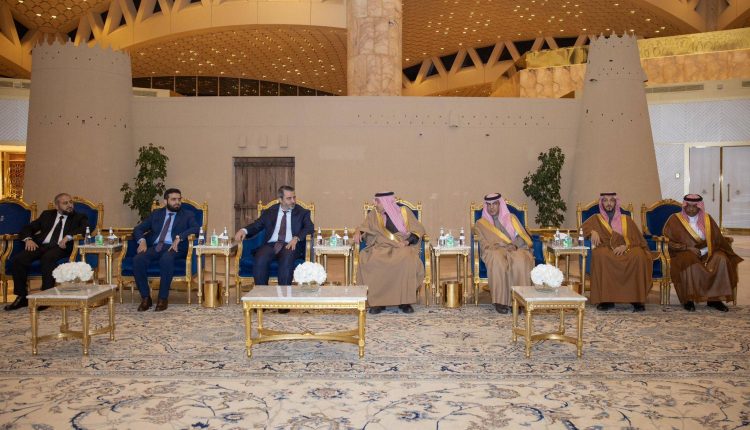Syrian Delegation Visits Saudi Arabia to Strengthen Security Cooperation
By Kardo Roj
DAMASCUS, Syria (North Press) – A senior Syrian delegation completed a visit to Saudi Arabia earlier this month, engaging in a series of meetings with security officials in Riyadh to review and draw from the Kingdom’s institutional expertise in internal security, the two countries’ interior ministries confirmed on Thursday.
The visit, which took place from April 14 to 16, comes amid expanding efforts by Syria’s transitional government to modernize its security apparatus and stabilize the country following the collapse of the former regime late last year.
The Saudi Ministry of Interior announced the visit via its official account on the social media platform X, framing the initiative as part of the Kingdom’s commitment to supporting Syria’s transition and contributing to the restoration of national security and stability.
The Syrian Interior Ministry, in a statement on its Telegram channel, emphasized that the visit was designed to “benefit from the advanced experiences of Saudi Arabia’s security institutions in order to enhance Syria’s internal capabilities and confront persistent challenges.”
The delegation’s itinerary reportedly included technical presentations, briefings on crisis management, and site visits to Saudi institutions handling border security, criminal investigations, and counterterrorism operations.
Officials in Damascus have made internal security reform a central pillar of the post-conflict recovery strategy. As part of that agenda, transitional authorities have sought technical cooperation with regional partners, notably the Gulf states, to improve policing, intelligence coordination, and civil safety mechanisms.
The growing collaboration with Saudi Arabia reflects shifting regional dynamics following the fall of the Assad regime in December 2024. Riyadh has emerged as a key interlocutor in Syria’s regional reintegration and has hosted a series of political and security meetings with the Syrian transitional leadership.
In recent months, high-level Syrian officials, including Foreign Minister Asaad al-Shibani and Defense Minister Murhaf Abu Qasrah, have traveled to the Kingdom for bilateral discussions. According to official reports, these meetings have focused on not only security matters but also economic revitalization, regional diplomacy, and infrastructure planning.
The recent visit of Syrian security officials underscores a broader strategy by the transitional government to establish institutional legitimacy and secure technical support from established regional actors.
The development is viewed as a significant step in reorienting Syria’s security architecture away from the repressive practices of the former regime, and toward modern, professionalized standards aligned with regional norms.
While the visit itself was technical in nature, analysts suggest that such cooperation could pave the way for broader engagement, including potential support for reconstruction efforts and counterterrorism collaboration. The security partnership may also facilitate coordination in addressing transnational threats, such as the remnants of the Islamic State (ISIS), whose cells remain active in parts of central and eastern Syria.
In territories administered by the Autonomous Administration of North and East Syria (AANES), the Syrian Democratic Forces (SDF) have continued to lead targeted operations against ISIS sleeper cells, supported by international coalition partners. The SDF’s experience in grassroots security and its emphasis on community-based policing could complement efforts by Damascus to rebuild trust in national institutions elsewhere.
As Syria navigates the complex path of political transition and reconstruction, cooperation with regional powers such as Saudi Arabia is likely to deepen. The success of these partnerships will hinge on sustained commitment to transparency, institutional reform, and inclusive governance.
Whether this engagement will translate into tangible improvements in national stability remains to be seen. However, the increasing frequency of official exchanges signals a notable shift in Syria’s post-war foreign policy, with security diplomacy playing a central role in the country’s efforts to reposition itself within the regional order.

